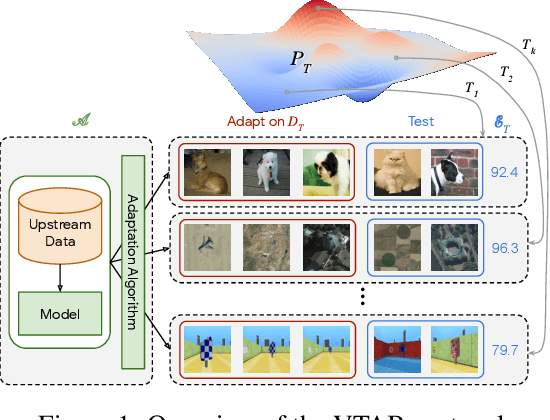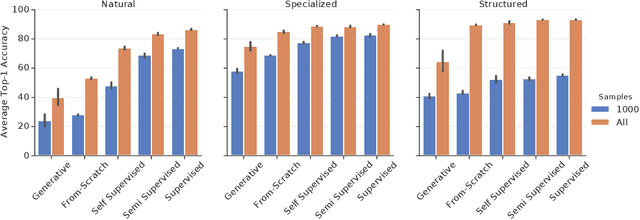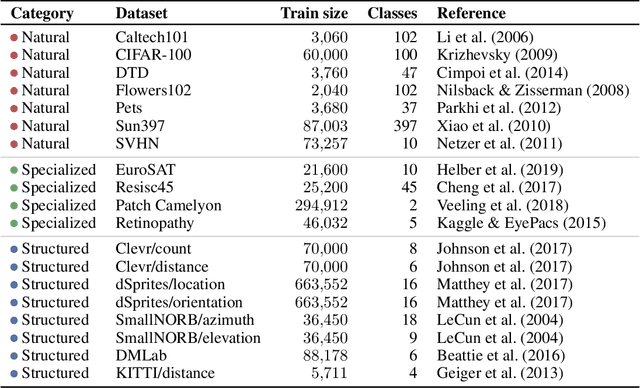Andre Susano Pinto
In-domain representation learning for remote sensing
Nov 15, 2019



Abstract:Given the importance of remote sensing, surprisingly little attention has been paid to it by the representation learning community. To address it and to establish baselines and a common evaluation protocol in this domain, we provide simplified access to 5 diverse remote sensing datasets in a standardized form. Specifically, we investigate in-domain representation learning to develop generic remote sensing representations and explore which characteristics are important for a dataset to be a good source for remote sensing representation learning. The established baselines achieve state-of-the-art performance on these datasets.
The Visual Task Adaptation Benchmark
Oct 01, 2019



Abstract:Representation learning promises to unlock deep learning for the long tail of vision tasks without expansive labelled datasets. Yet, the absence of a unified yardstick to evaluate general visual representations hinders progress. Many sub-fields promise representations, but each has different evaluation protocols that are either too constrained (linear classification), limited in scope (ImageNet, CIFAR, Pascal-VOC), or only loosely related to representation quality (generation). We present the Visual Task Adaptation Benchmark (VTAB): a diverse, realistic, and challenging benchmark to evaluate representations. VTAB embodies one principle: good representations adapt to unseen tasks with few examples. We run a large VTAB study of popular algorithms, answering questions like: How effective are ImageNet representation on non-standard datasets? Are generative models competitive? Is self-supervision useful if one already has labels?
 Add to Chrome
Add to Chrome Add to Firefox
Add to Firefox Add to Edge
Add to Edge